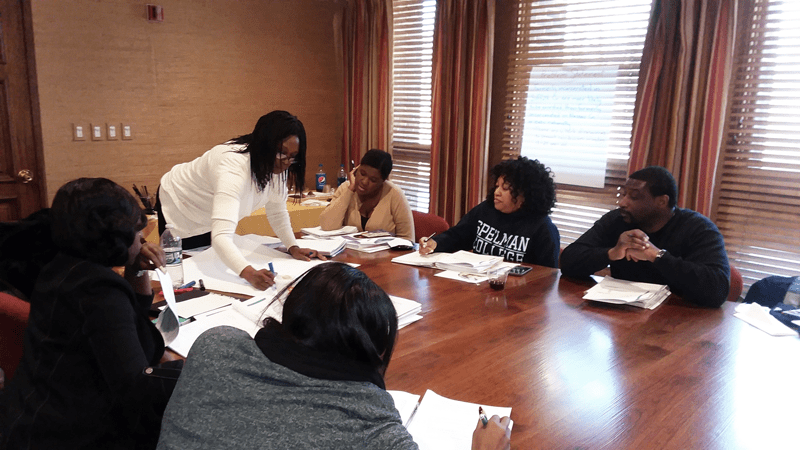
Eight years ago, organizational development experts Brian Leander and Jennifer Rutledge recognized a need on Long Island to support nonprofit leaders of color. Even as the Island had grown more diverse—with people of color now making up one-third of the local population—nonprofit leadership had not.
To address these inequities, Leander and Rutledge created the Leading in Community program at Adelphi University’s Center for Nonprofit Leadership.
“The primary goal is to strengthen the leadership pipeline for people of color and prepare them to lead community nonprofits,” said Rutledge.
The eight-month program has received funding since its inception from The New York Community Trust – Long Island, and these days it also gets support from alumni, some of whom now serve as faculty.
“Leading in Community granted me visibility and access to a community of professionals who had insight and diverse cultural experiences,” said Christina Flythe, who was a member of the program’s first cohort and currently serves on the faculty, in addition to her role as director of health and nutrition at the Child Care Council of Suffolk.
The first of the program’s four stages focuses on personal leadership and addressing barriers like disparities in access to education and networking, as well as challenges stemming from internalized oppression and economic status.
“Dr. Leander had this vision of eliminating the barriers to leadership for people of color on Long Island,” said Rutledge. “He and I knew right from the beginning: it wasn’t as much about skills as it was about confidence and access.”
During the first phase, participants reflect on their values and leadership styles and design a personal leadership plan.
For Flythe, this stage of the program stands out as a turning point. “When I came into the cohort I wasn’t sure what to expect,” she said. “But what I’ve gained is an increase in confidence and awareness.”
The second phase trains participants for organizational leadership, from directing teams and boards to managing finances and evaluating programs. The third phase focuses on community leadership. Participants learn strategies for rolling out a community initiative and develop capstone projects addressing a local issue.
The program, said Daniel Kaplan, faculty director at the Center for Nonprofit Leadership, “is about making change, sharing power, and focusing on the wellness of communities and the people within the communities.”
The final phase, which was added based on alumni feedback, focuses on participants’ mental and emotional health needs. Rutledge said this phase helps participants prepare for the challenges of leadership, taking into account “that they have their own barriers and issues to navigate as people of color, and making sure they don’t experience burnout, that they can manage stress and handle trauma-related incidents and environments.”